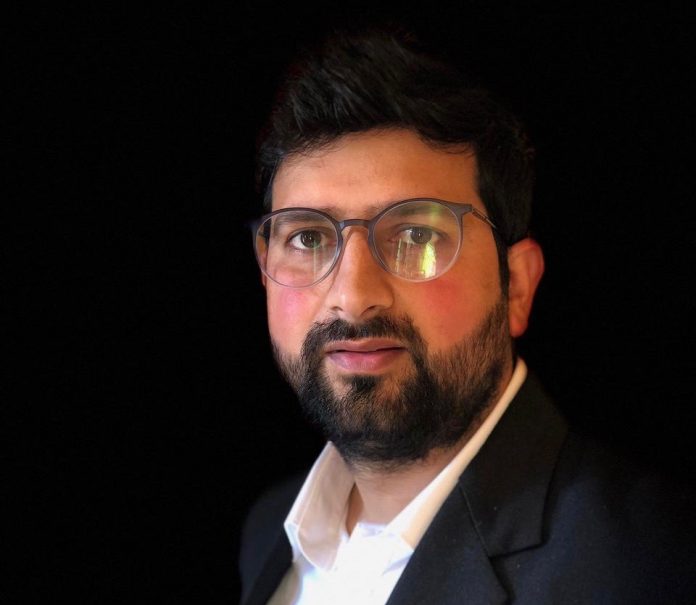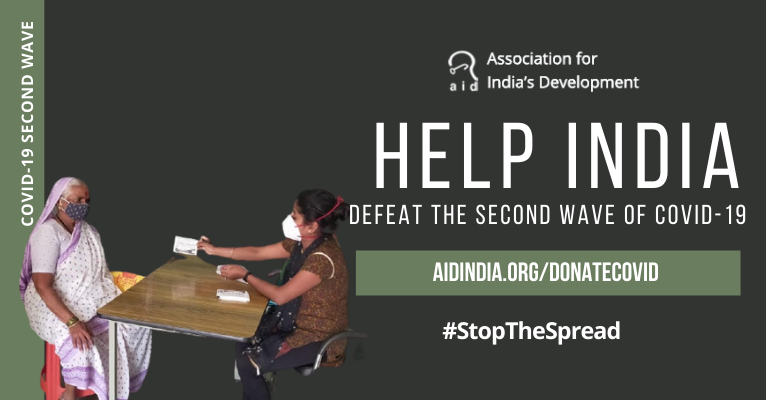Working as a lawyer is not easy in a region like Kashmir, where multiple levels of threat not only impede justice but restrict the work of a lawyer. In this TCN Ground Report from Kashmir, we trace the journey of a young lawyer from Kashmir, who went from being a public prosecutor to fighting UAPA cases, and recount the challenges the lawyers face in the region.
Musheera Ashraf | TwoCircles.net
KASHMIR – “He was shot dead and all he held in his hand was a juice bottle and a small piece of bread. He was taken by the army informers who told him that they were on their way to join a Tableegh,” the file read. It was around 1:00 a.m. Everyone is asleep in the house. As was his daily routine, 32-year-old Shafeeq Bhat, a lawyer and a public prosecutor from Kashmir, was busy studying the case for which he was representing the state. Tears rolled down his cheeks as he went through the file. The case was about the murder of a civilian labourer in an encounter. “When I read case files like these, it feels as if the situation is transpiring in front of my eyes and I feel guilty that I couldn’t help the person,” Shafeeq recalled to TwoCircles.net.
“He (referring to the civilian labourer) was killed for no fault of his. He had no reason to get killed,” Shafeeq said as he discusses the emotional trauma that a lawyer in Kashmir goes through while dealing with sensitive cases like these. “As a public prosecutor, you have to fulfil the duty even if it goes against your conscience,” he said.
“As a prosecutor, you have to prosecute every case whether the accused have been framed illegally or has committed a crime,” he said. “But as a defence lawyer, you have the right to choose. If you feel that the accused is guilty of the offence, then you have a right not to represent him”.
Criminal defence lawyers represent defendants facing criminal charges in state, federal and appellate courts. Their scope of practice includes bail bonds, hearings, plea bargains, trial, revocation, hearing appeals and post-conviction remedies. “If a person is working in a conflict area, he has to think twice,” Shafeeq remarks.
Since the break out of the armed conflict in 1989, as per human rights groups, more than 70,000 people have been killed in the region and more than 8000 people have been subjected to enforced disappearance with hundreds of cases of torture, rapes, extra-judicial killings etc. The recent change in the status of Jammu Kashmir from a state to Centrally ruled Union Territory after the unilateral abrogation of Article 370 has caused political tensions in the region.
After completing his studies in Pune in 2011, Shafeeq started practising as a lawyer for around one and a half years before he became a public prosecutor to represent the state. He has represented the state in many cases. He has dealt with many high profile murder cases and narcotics cases. “I was against the tide. I was against the accused in all these cases,” he said.
However, something had to change. After working for 40 months as a public prosecutor, Shafeeq resigned from the post in October 2018.
At present, Shafeeq practices as a defence lawyer dealing with cases of Unlawful Activities (Prevention) Act (UAPA) and the Public Safety Act (PSA), two laws that have been widely criticized for their arbitrariness.
Shafeeq has been a witness to several cases which were later proved as fake cases. “Some of the people arrested under these laws were juveniles and I fought their cases,” he said.
From witnessing the tears of the affected families to providing them strength and hope for justice, Advocate Shafeeq passionately continues his work.
Need for addressing mental health of lawyers in Kashmir
Lawyers from Kashmir state that there is an urgent need to address the mental issues of the legal community. Although Article 21 of the Constitution of India, the right to life expands to include the right to health but the mental health of the lawyers working on sensitive cases is largely ignored and not talked about.
“The mental health of lawyers has never been discussed because when you choose to be a defence lawyer it’s considered a choice, not an option,” Advocate Shafeeq said. “If you don’t want to get stressed then you can’t choose to be a criminal lawyer,” he adds.
Though the Bar Association claims to work for the welfare of the lawyers, Shafeeq is not satisfied. “The issue of mental health of lawyers has never been addressed in the Bar Association meetings and at higher levels,” Shafeeq said.
He said that a lawyer working in Kashmir doesn’t have a time-bound job and if he will not give extra time to the case, he cannot represent the case efficiently before the court. “If you have to represent you have to rigorously, honestly, essentially prepare a brief, which keeps you involved in the case mentally,” he said.
As compared to other professions, lawyers in Kashmir are confronted with traumatic stories of human-induced violence, the situations they see are intense and concentrated.
Advocate Parvez Imroz, Founder and President of Jammu & Kashmir Coalition of Civil Society (JKCCS) while addressing the situation of lawyers in Kashmir in a public meeting in 2017 remarked that when “other institutions of the state become dysfunctional judiciary is a facade.”
Seeing the accused behind the bars or in custody is stressful for the lawyers. “Even as a prosecutor he has to take care of many things including his safety and security,” Shafeeq said.
“Whatever stress you go through, you share it with the lawyer,” a family member of a UAPA accused told this reporter. “From custody to bail, to police approaching you, everything has to be discussed with the lawyer”.
Not just the freedom of their kin, but the happiness and safety of the family sometimes depends on an individual who is leading their case.
“A lawyer is the one on which the family lays their hope. Especially in fabricated cases, the family doesn’t know how to deal with such circumstances. Apart from legal help, the lawyer counsels the family which helps the family to deal with the situation,” a family member said. “Lawyers, who are at the forefront understand the sensitively of the case and their words give us a sense of security and hope,” the family member added.
Walking on a two-edged sword
Advocate Shafeeq maintains that working as a lawyer in Kashmir is akin to walking on a two-edged sword. “Life of a lawyer in the conflict area is like walking on a two-edged sword. We are doing our professional duty. The family of the opposite side sees the lawyer as an enemy. They won’t think that this is a professional duty of the lawyer and he/she is bound by the oath. This becomes very stressful for a lawyer,” he adds.
On the other side, when a lawyer represents the accused who has been framed under UAPA he is seen as an anti-national. “If you represent the army or state who are accused you will be looked upon as a traitor, mukhbir (informer) by the local populace,” he said.
“There have also been instances where the lawyer has been called as a separatist lawyer or an anti-national,” Shafeeq said.
Shafeeq gets paid for each case. For him, the satisfaction of fighting and acquiring justice for a person brings more happiness. The stress varies from case to case.
“Having coffee, listening to music and hanging out with friends helps sometimes. That is the only remedy,” he said.
Stringent laws?
When asked why the UAPA and PSA are perceived as draconian laws by the general public, Advocate Shafeeq said, “According to the constitution, even the accused in a murder case is believed to be innocent until proven guilty but here a person is treated as if he has been proved guilty, without any trial and any opportunity of being heard, which is against the basic the mandate of our constitution.”
Talking about the ordeal of the families whose kin have been arrested under these laws, Shafeeq said it takes months for the accused and sometimes years to take the case to the high court. “Till then, they are booked under charges which are not proved against them,” he said.
The police have the power to investigate the UAPA cases and this leads to the delay in starting the bail process. The police are given 180 days to investigate and the charge sheet is produced after 180 days. This causes the delay.
“In UAPA cases, sometimes the cases are based on manufactured shreds of evidence where they are based on some information from sources,” Shafeeq said.
As a prosecutor, Advocate Shafeeq said that he has seen such cases where he straight away told the agencies that “a particular person is not involved in the case as per the evidence and facts of the case.”
“The lawyer is seen as an anti-national element. The same is the case when a defence lawyer represents the accused involved in UAPA cases,” he said.
Talking about the case from North Kashmir where a 12th standard student was shot dead during a Cordon and Search Operation (CASO), Shafeeq said, “That case was very disturbing. The case was not investigated properly. It was a failure of the state machinery,” he said, and added, “The student was not guilty of any crime. He thought there was a thief in the village, and along with other people from the village he came out to see what’s happening but he lost his life.”
“Every day a lawyer has to be mentally involved for this. We are not able to give time to our families. Lawyers have a less social life,” he said.
Post Article-370 situation for lawyers
After the abrogation of Article 370, there has been an increase in the number of people being booked under UAPA and PSA. “The Civil code is not maintained. The state machinery is using its powers. They want to show that whoever has resentment is anti-national,” he said.
There are instances where the judicial system fails and justice is delayed.
“The lack of awareness and lack of approachable agencies for the accused and victims is the reason why people suffer,” he said.
“If someone files a case, he has to go through trauma at the police station or at court, which discourages the genuine complainant,” he added.
The loopholes in the judiciary need to be addressed at a higher level, he maintains.
When asked if providing security to the lawyers in Kashmir will help, Shafeeq is not enthusiastic about it. “In particular cases, security can be provided to the prosecutor but in general, it is not the practice,” he said.
Talking about a case where a public prosecutor was shot dead by an accused militant, Shafeeq said, “Dealing with a sensitive case puts the life of a lawyer at stake. Although he was not a public prosecutor when he was shot dead, the threat and insecurity still exist even if the case is over,” he added.
HELP SUPPORT INDEPENDENT AND NON-PROFIT MEDIA. DONATE HERE








